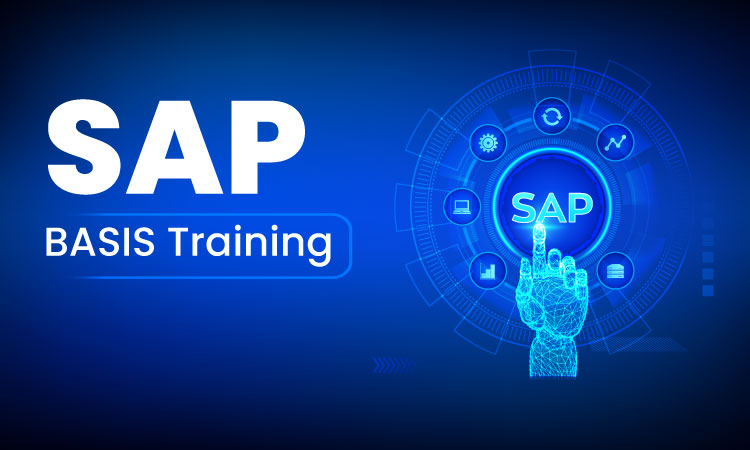
Contents
SAP BASIS is like the backbone of the SAP system – it provides the basic technical groundwork and the support on which the SAP applications stand stable and run smoothly. Ranging from system administration and configuration to performance monitoring and troubleshooting.
This article will attempt to help you in your career journey in SAP and understand the key components of SAP BASIS training and how will it boost your growth.
Key Components of SAP BASIS
When you are on your journey of SAP BASIS Career, you will have to learn and understand a few components which include:
1. Foundational Concepts
● Introduction to SAP BASIS: Understand the functions of SAP BASIS like roles, duties and parts in the SAP system environment.
● SAP Architecture: Know the architecture of SAP systems, which include the multivalent layers and components that constitute an SAP landscape.
2. System Administration
● System Installation and Configuration: Accumulate practical knowledge in constructing and configuring SAP systems from the installation phase, that is setting up servers, databases, and application servers.
● User and Authorization Management: Discover how to administer users’ accounts, roles and rights to guarantee the correct users’ access to SAP systems.
3. Performance Monitoring and Tuning
● System Monitoring: Get to know mechanisms for monitoring the SAP solutions settings, well-being and temper and see how these are delivered through SAP Solution Manager and other third-party monitoring tools.
● Performance Optimization: Learn to detect the performance bottlenecks and how to enhance system performance through tuning, configuration tweaking, etc.
4. Backup and Recovery
● Data Backup: Get to know the data backup significance and familiarize yourself with the process of backing up SAP databases and system files daily.
● Disaster Recovery: Discuss the strategies and techniques of disaster recovery planning and execution to restore system operation continuity when the systems fail or go down.
5. Security and Compliance
● Security Best Practices: Acquire SAP security knowledge and study the security best practices for SAP systems: authentication, encryption and audit logging.
● Compliance Requirements: Understand compliant requirements like GDPR and SOX and apply strategies for SAP systems to meet compliance standards.
Career Options
1. SAP BASIS Administrator: As SAP BASIS Administrator, your duties will be doing system administration of SAP, and taking care of the installation, configuration, monitoring, and maintenance jobs.
2. SAP BASIS Consultant: SAP BASIS Consultants is a consultants team engaged by organizations to provide help in SAP infrastructure design, implementation, and optimization.
3. SAP BASIS Architect: SAP BASIS Architects create architecture for SAP landscapes, making sure that factors like scaling, security and uptime, are all taken into account. They devised the high-level design, infrastructure needs, systems limitations, and technical specifications for the project work.
4. SAP BASIS Analyst: SAP BASIS Analysts are responsible for the analysis and appropriate troubleshooting of the SAP systems. They also perform upgrades and patches of the system as well as provide technical assistance to the users.
5. SAP BASIS Trainer: SAP BASIS Trainers will deliver the seminars and extend the understanding of SAP BASIS use cases, tools, procedures, and techniques.
Benefits
Core Infrastructure Management: Learning SAP BASIS provides an understanding of core infrastructure components such as servers, databases, and networks, as well as how they interact with SAP applications.
System Administration Skills: These skills are essential for ensuring the smooth operation of SAP systems, SAP BASIS Training covers system administration tasks such as user management, authorization, transport management, and performance tuning.
Career Opportunities: SAP BASIS is in high demand, and acquiring skills in this area opens up various career opportunities in SAP administration, consulting, architecture, and analysis roles.
Integration with Other SAP Modules: Understanding SAP BASIS is beneficial for professionals working with other SAP modules, as it provides insights into how these modules interact with the underlying infrastructure.
Conclusion
SAP BASIS online training offers an accessible and effective way to learn about the essential technical infrastructure of SAP systems and gain the skills needed to manage and optimize SAP environments. So, why wait? Start your journey to SAP BASIS mastery today and unlock the full potential of SAP systems in your organization.